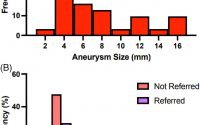Stress from rising population numbers may cause a decline in human fertility

A predicted population drop at the end of the century could be explained by stress from meaningless social interactions, according to a review article published in the Endocrine Society’s journal, Endocrinology.
Researchers predict a peak in population numbers in 2064 followed by a 50% drop by the end of the century from changes in human reproductive behavior and function. There has been a 50% decrease in sperm counts over the last 50 years. People are stressed out from more frequent but less quality social interactions, and stress can supress sperm count, ovulation and sexual activity.
“Rising population numbers contribute to less meaningful social interactions, social withdrawal and chronic stress, which subsequently supresses reproduction,” said the manuscript’s author Alexander Suvorov, Ph.D., of the University of Massachusetts Amherst in Amherst, Mass. “Changes in reproductive behavior that contribute to the population drop include more young couples choosing to be ‘child-free,’ people having fewer children and couples waiting longer to start families.”
Suvorov found a connection between population numbers, stress and reproduction by reviewing several studies and asking the following questions:
- Why do people refuse to have children when access to all vital resources is becoming better than humankind ever had?
- Why has there been a 50% decrease in sperm counts over the last 50 years?
- Why are different forms of social withdrawal on rise?
He hypothesized declining reproduction may be due to stress from less quality social interactions and changes in reproductive behavior such an increase in “child-free” couples and delayed parenthood.
Source: Read Full Article


